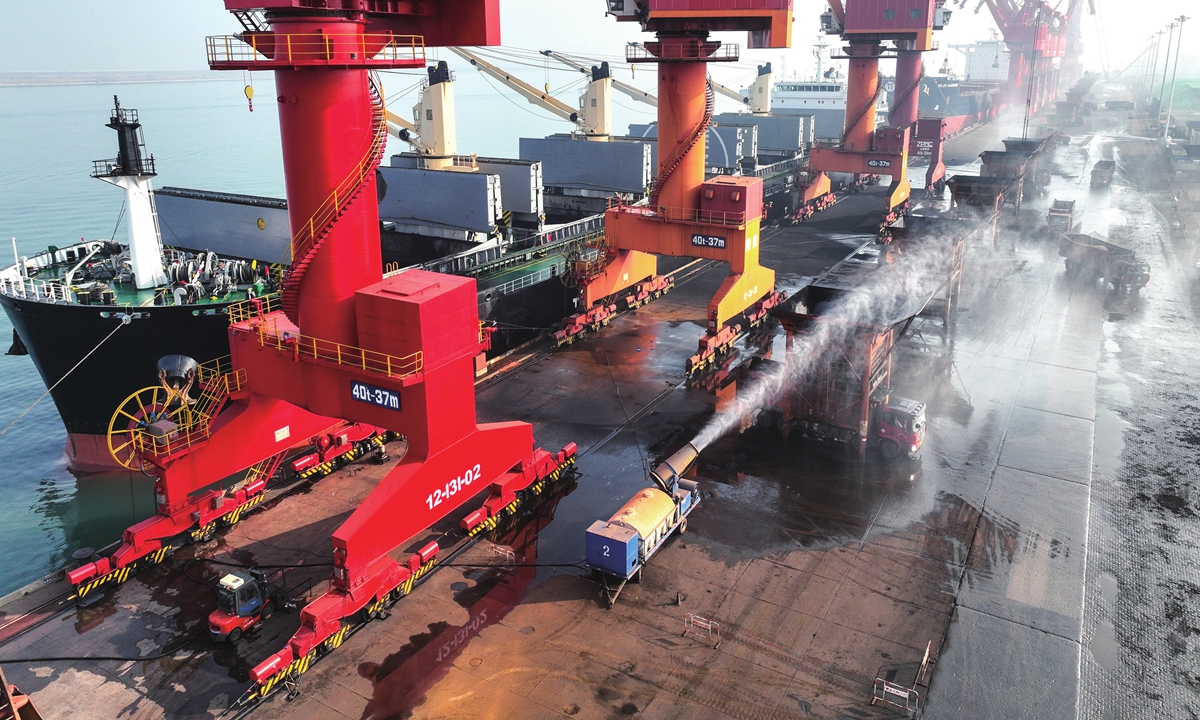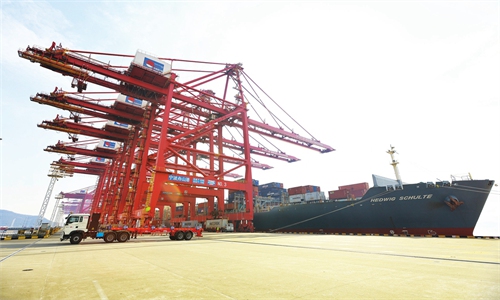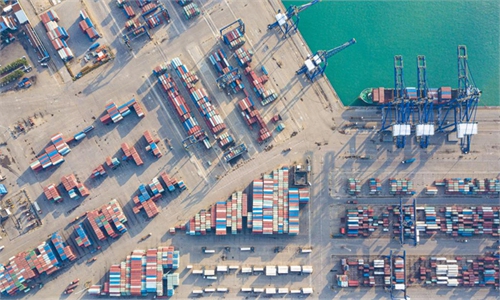Chinese economists urge more support for jobs, MSMEs, greater intl cooperation to boost growth

A cargo ship unloads coal at a port in Lianyungang, East China's Jiangsu Province on November 16, 2022. The port has opened a "green channel" for thermal coal shipments ahead of rising winter demand, giving priority to vessels and their cargo to keep people in China warm and the economy stable during the cold months. Photo: cnsphoto
As more signs of recovery are emerging in the Chinese economy, economists have expressed optimism and confidence toward the nation's economic outlook in 2023, predicting that recent rapid recovery will be further boosted by various factors such as increased consumption, stabilized employment and continuous opening-up.
The Chinese economy will be able to catch up significantly in the second quarter without disruptions from uncertainty, which will further boost and improve market expectations and inject more momentum for the third and fourth quarters of 2023, said Jia Kang, head of the China Academy of New Supply-Side Economics.
Jia said that he anticipates an economic growth rate of 6 percent or higher for China in 2023. He outlined the significance of enhancing support for micro-, small- and medium-sized enterprises (MSMEs) and creating more job opportunities in a bid to further stimulate the recovery of consumption.
It will be important to grasp effective investments to create more employment opportunities, especially targeting MSMEs and the private economy, which are crucial for creating new job opportunities, said Jia.
Zhou Tianyong, a professor at Dongbei University of Finance and Economics, echoed Jia's opinion, noting that economic development remains the top priority for the nation. In addition to support for MSMEs, Zhou also suggested increased support for the service industries and flexible employment.
Both Jia and Zhou noted that the recovery of consumption must be established on the basis of a revival of employment and steady income.
The increasingly upbeat sentiment toward the Chinese economy is also shared by many overseas economists and global financial institutions. According to a Global Times' analysis of research notes, comments and projection reports from about 10 well-known global financial institutions, including US-based Moody's Analytics, Netherlands-based KPMG, UK-based PricewaterhouseCoopers (PwC) and Japan-based Nomura, all of them forecast higher a growth rate in 2023, despite lingering risks and challenges.
Among the challenges, a weakening global economy will likely result in sluggish demand for Chinese exports, economists noted. However, there is still great potential for China's export sector, as the country continues to expand opening-up and strengthen global cooperation, they said.
China has been continuously promoting high-quality opening-up over the past three years despite challenges including the COVID-19 pandemic and the complicated geopolitical environment. Moving forward, experts are confident in the arrival of closer and deepened international cooperation.
Jia stressed that China will never give up on strengthening trade with the rest of the world, while boosting domestic consumption when it comes to implementing the dual-circulation strategy.
He added that the "world factory" has contributed to the global economic development by providing high-quality products. It is now also upgrading and elevating its competitiveness in response to global changes, with more supportive policies to be implemented for relevant enterprises, according to Jia.
Long Yongtu, former vice minister of commerce and chief negotiator on China's accession to the WTO, said that in 2023, economic and trade ties disrupted by the pandemic will be reconnected and scattered international industrial chains due to the pandemic will be bonded again.
In addition, to boost confidence, Long recommended attracting more foreign investment with stepped-up efforts, as "attracting a large project means increasing a new economic growth point."



